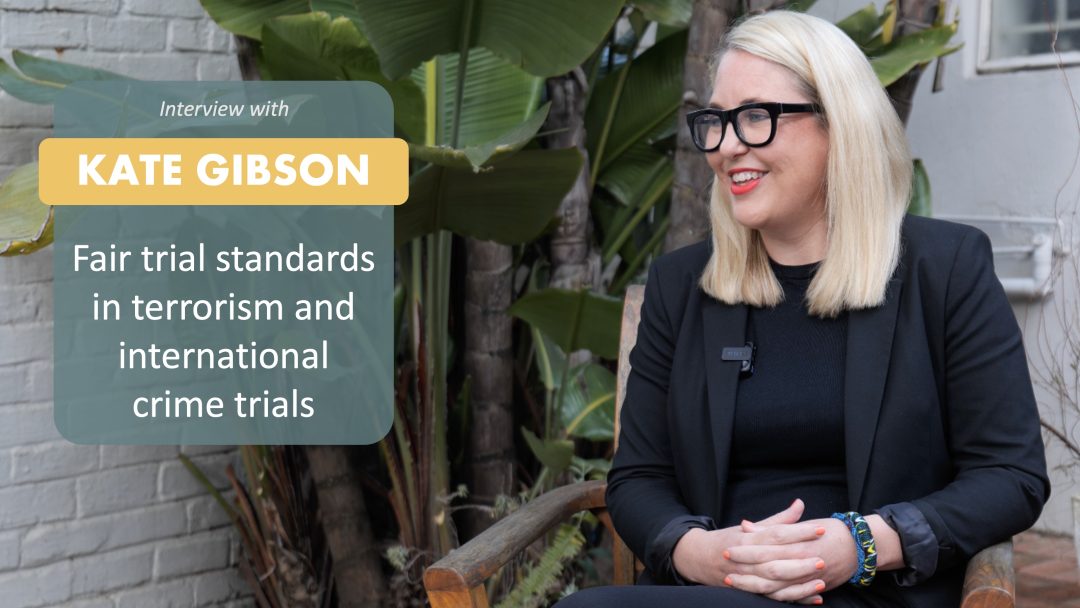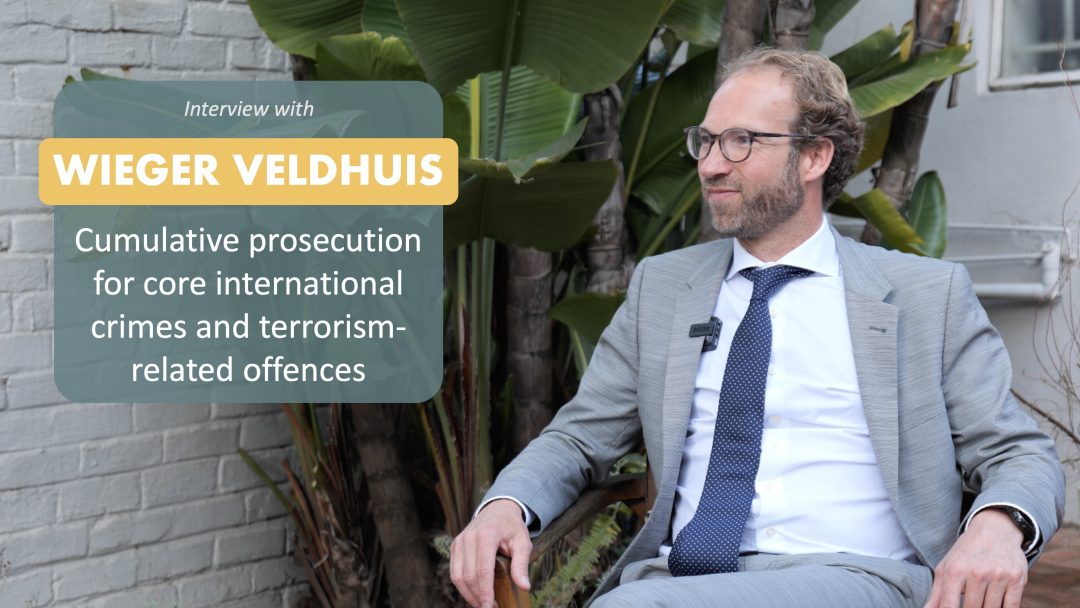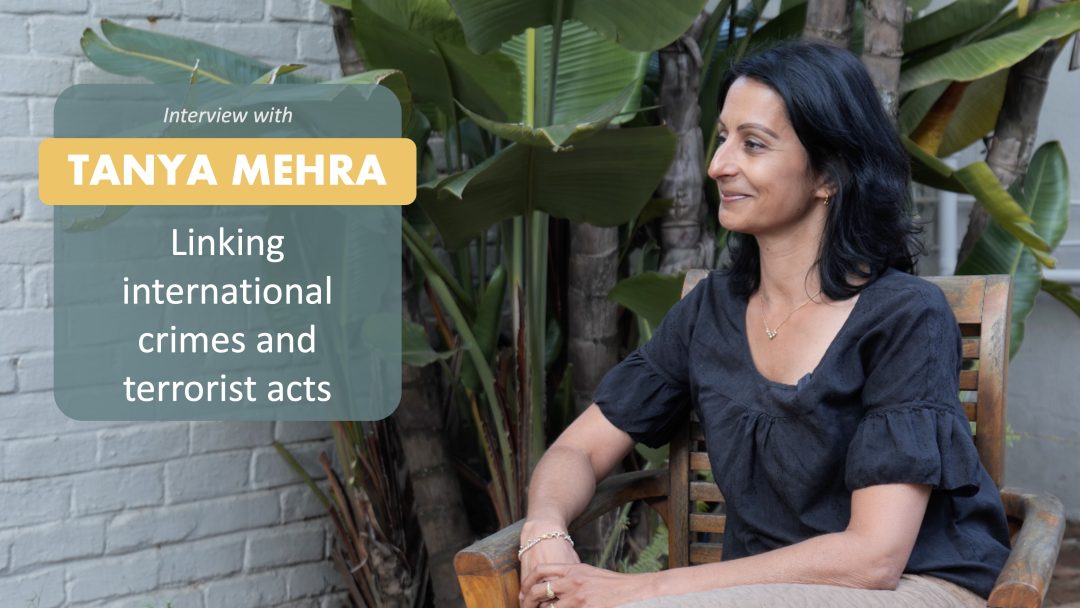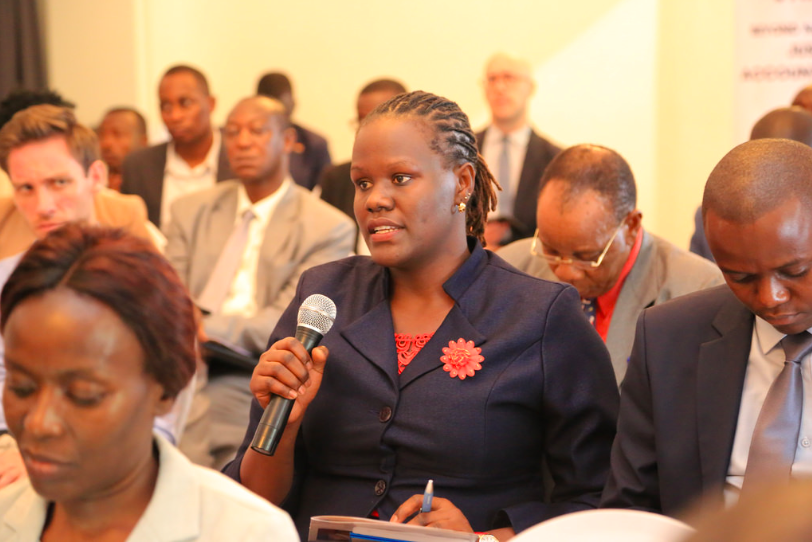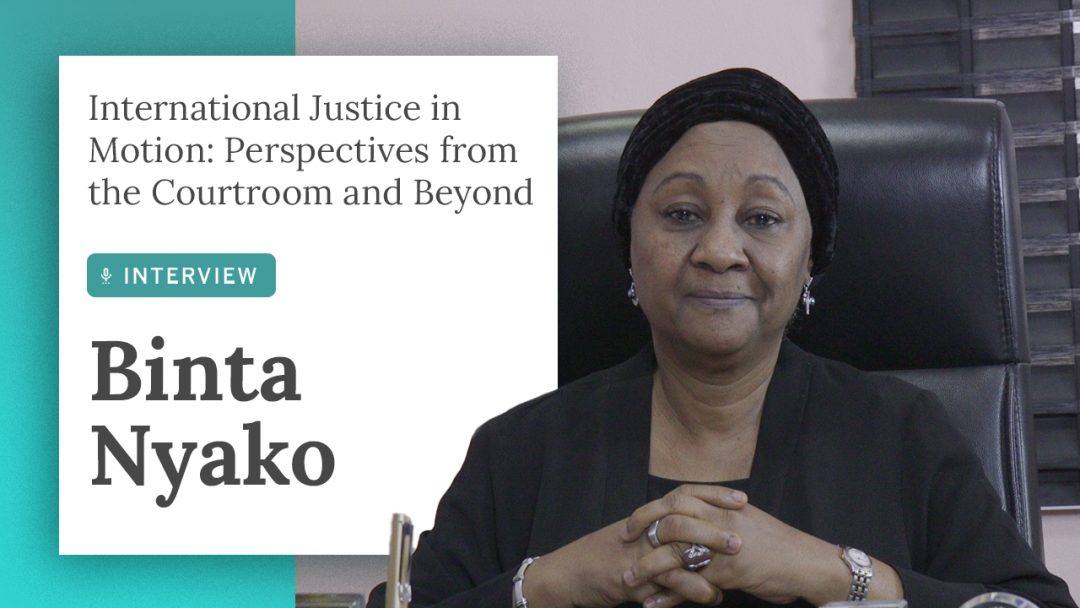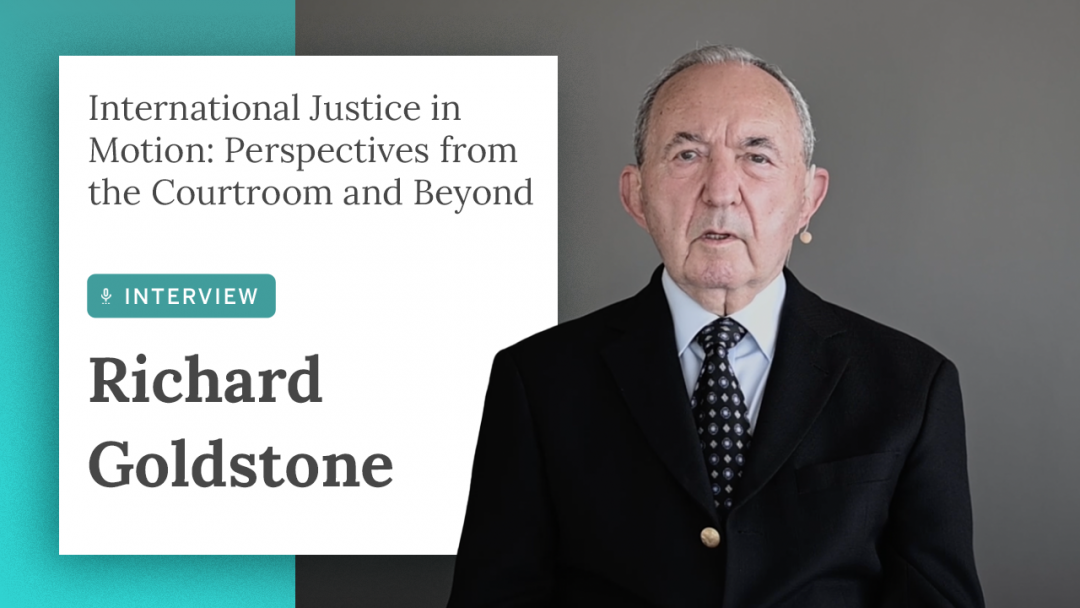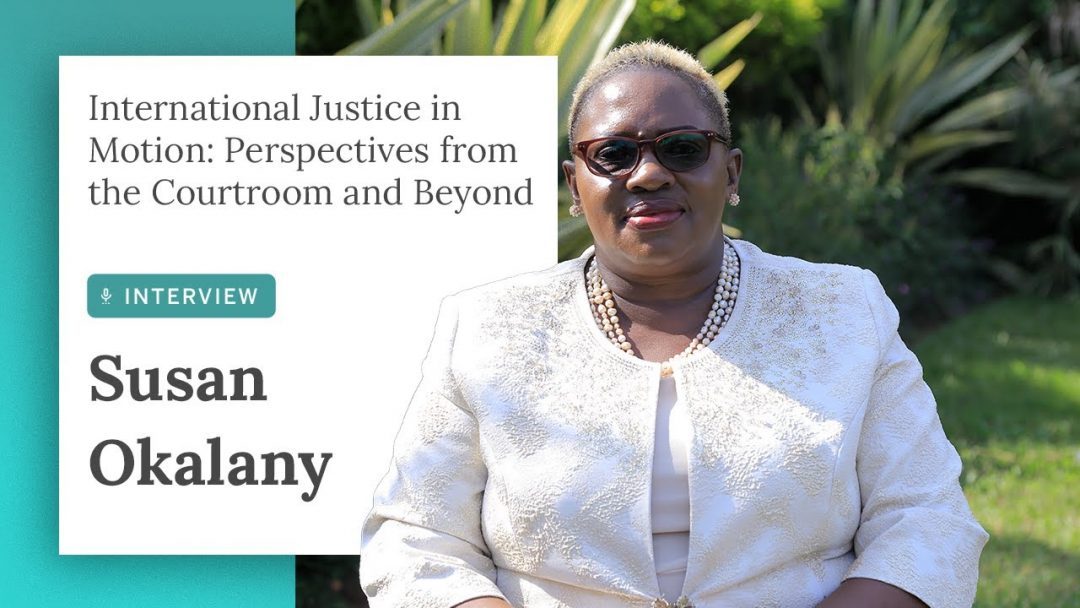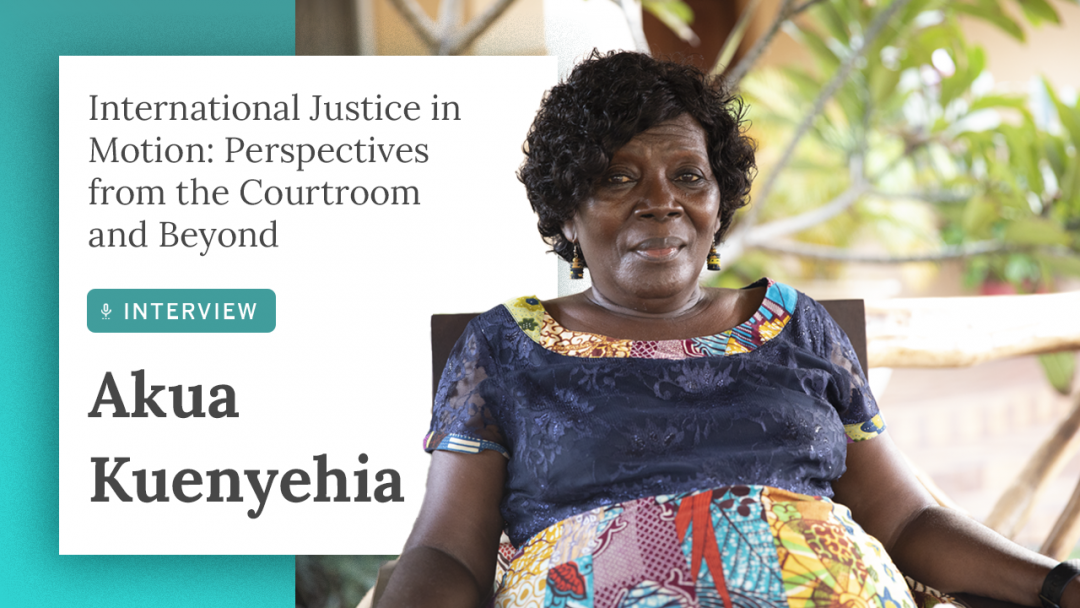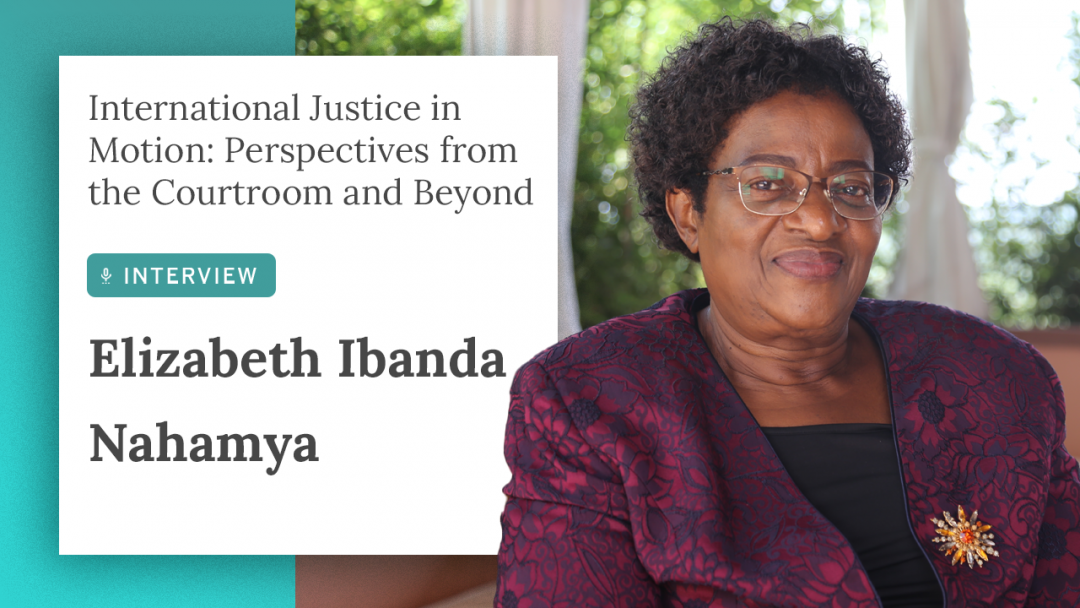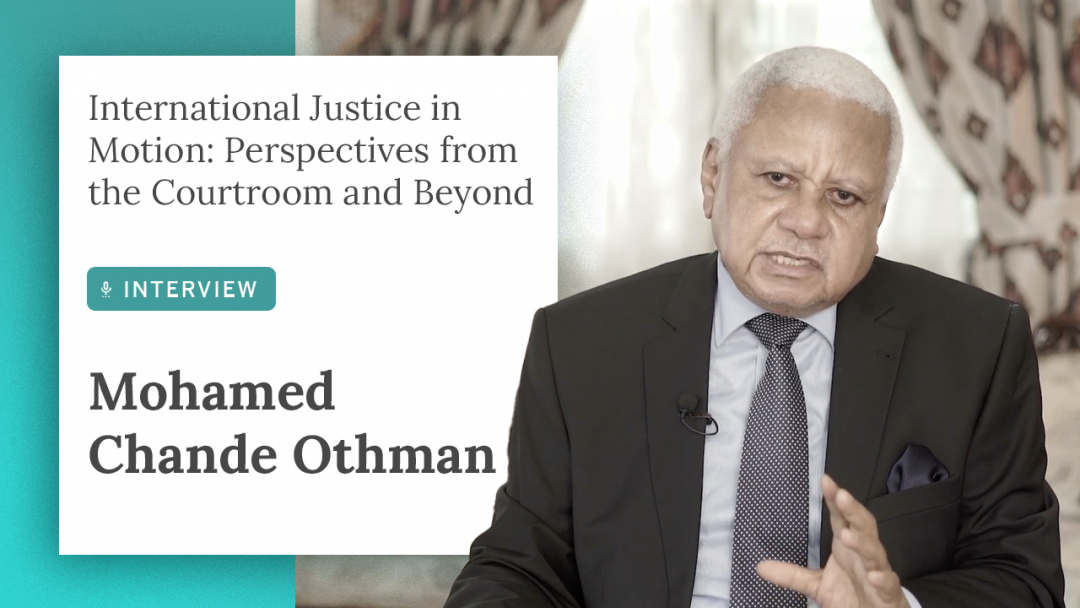Drawing on her own experiences, Kate Gibson, a lawyer specialising in International Criminal Law and International Human Rights Law who has practiced as defence counsel at numerous international courts, discusses the importance of upholding the right to defendants and fair trial standards in terrorism and international crime cases.
Cumulative prosecution for core international crimes and terrorism-related offences
Wieger Veldhuis, Public Prosecutor for International Crimes, Public Prosecution Service of The Netherlands, speaks with Wayamo’s Mark Kersten about the advantages of prosecuting terrorist acts for both core international crimes and terrorism-related offences.
Linking international crimes and terrorist acts
Tanya Mehra, Senior Research Fellow and Programme Lead, International Centre for Counter-terrorism, discusses the utility and ongoing challenges of investigating and prosecuting terrorism and international crimes cases.
Expert workshop: countering terrorism and international crimes
Wayamo Foundation and KAS Rule of Law Program for Anglophone Sub-Saharan Africa take pride in announcing that they will be holding a two-day expert workshop in Pretoria on the nexus and linkages between terrorism, human rights, and international crimes. This workshop will bring together counter-terrorism and international criminal justice experts, human rights advocates, academics and practitioners from Europe and selected countries from Eastern, Southern and West Africa.
International Justice in Motion – Perspectives from Nigeria and Beyond
Nigerian Federal High Court Judge Binta Nyako talks about justice and accountability for crimes committed by Boko Haram in Nigeria.
International Justice in Motion – Perspectives from South Africa and Beyond
Richard J. Goldstone, Former Justice at South Africa’s Constitutional Court and founding Chief Prosecutor of the ICTR and ICTY, shares his thoughts on the role of the judiciary in defending human rights and the rule of law during apartheid in South Africa. Judge Goldstone also discusses the relationship between the ICC and African states, as well as the future of international criminal justice on the African continent.
International Justice in Motion – Perspectives from Uganda and Beyond
Susan Okalany is a judge at the International Crimes Division (ICD) of the High Court of Uganda. In this interview, she discusses the challenges judges face when adjudicating international crime cases at the ICD.
International Justice in Motion – Perspectives from the ICC and Beyond
Akua Kuenyehia, former First Vice-President and Judge of the ICC, discusses the importance of judicial independence and the rule of law when adjudicating international crime cases. She talks about the future of the ICC-Africa relationship and what needs to be done to see judicial systems across Africa adjudicating international crimes domestically.
International Justice in Motion – Perspectives from Uganda and Beyond
Elizabeth Ibanda Nahamya is a judge at the United Nations International Residual Mechanism for Criminal Tribunals (IRMCT). She discusses how IRMCT jurisprudence is also being used by domestic jurisdictions in Africa to prosecute and adjudicate international crimes.
International Justice in Motion – Perspectives from Tanzania and Beyond
Mohamed Chande Othman, former Chief Justice of Tanzania, discusses the legacy and impact of the ICTR in terms of what this means for the application of international criminal law in Africa. He describes how national jurisdictions can integrate ICTR jurisprudence into their own national systems to better adjudicate international crimes domestically. The former Chief Justice shares his thoughts on the major challenges facing the judiciary in Tanzania, and on other issues, such as judicial independence, the rule of law, and the future of the adjudication of international crimes cases on the African continent.

